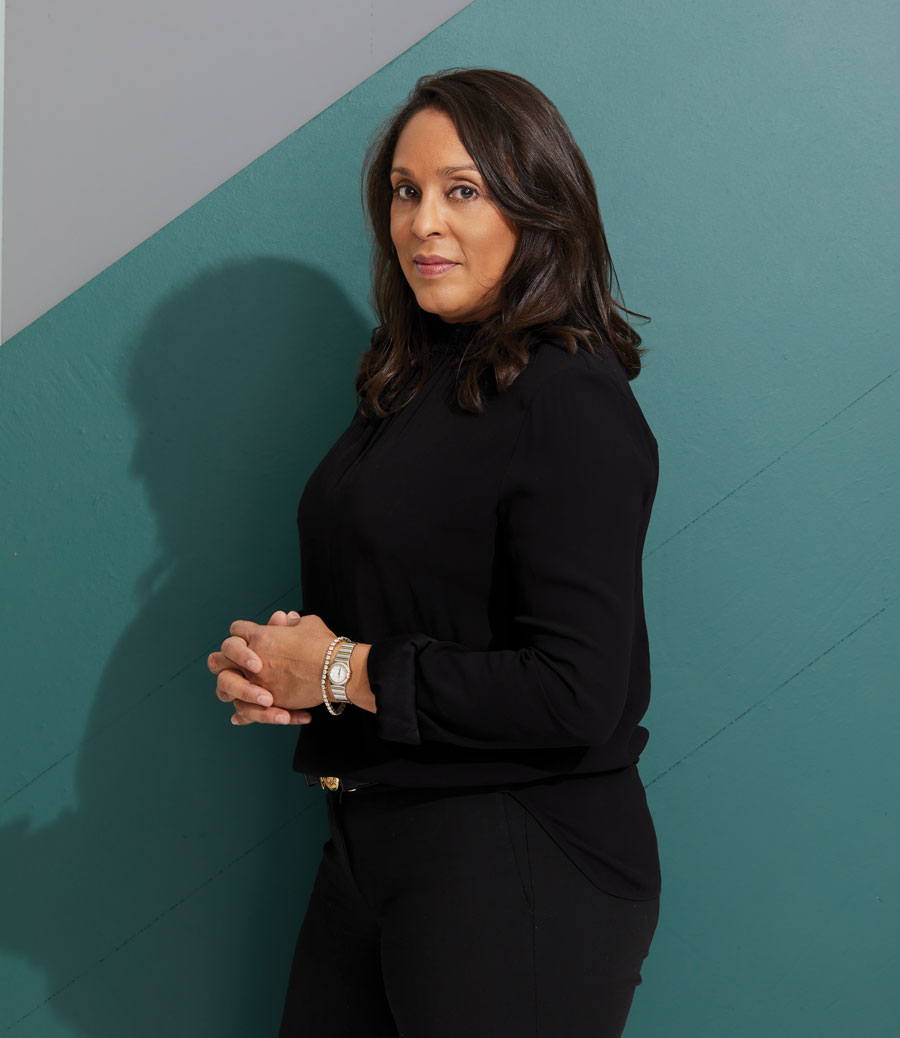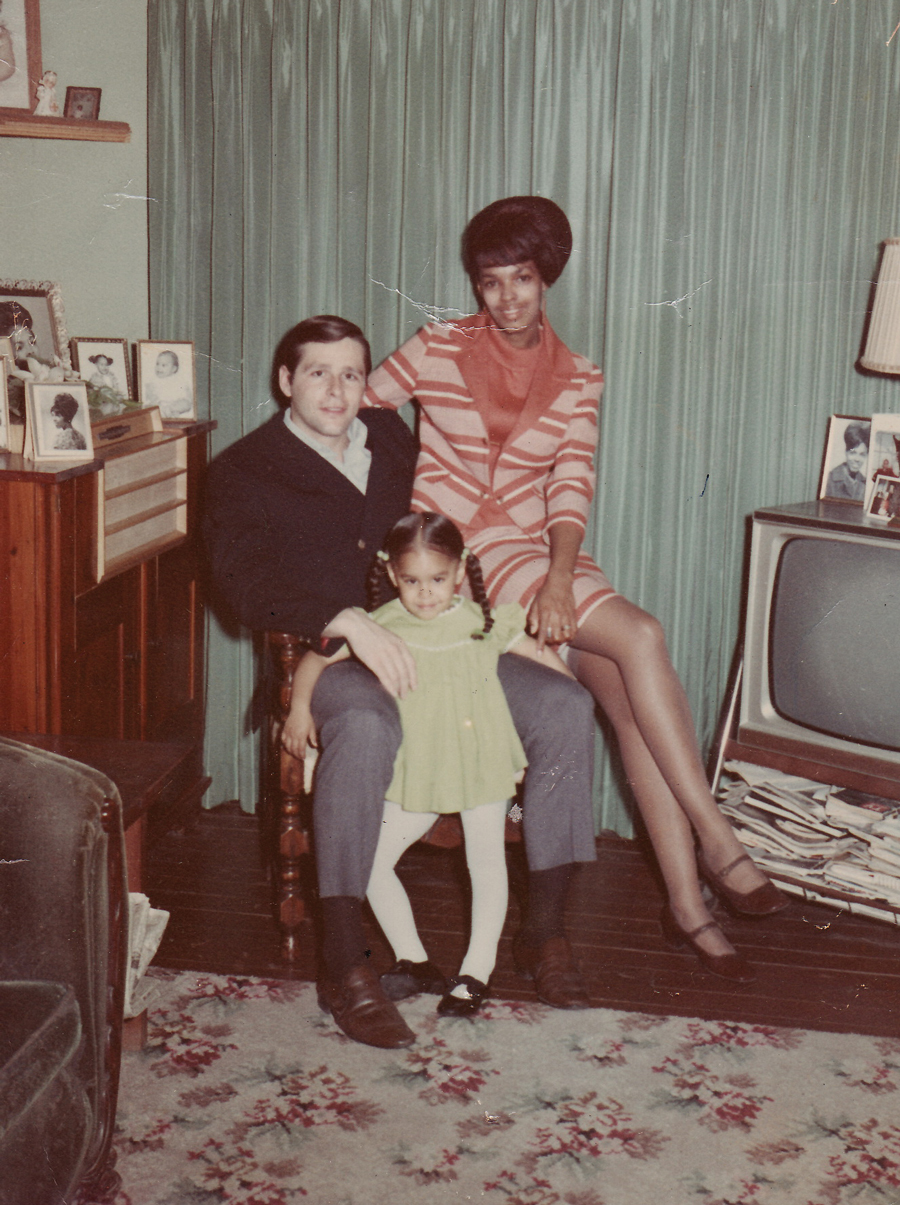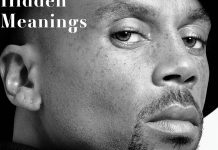
Photograph by Kevin Penczak
Natasha Trethewey was a 19-year-old freshman at the University of Georgia when a police officer appeared at her dorm room and gave her a phone number to call. The voice at the other end of the line informed her that her mother was dead. Gwendolyn Ann Turnbough had been shot twice at close range by Trethewey’s former stepfather, a man she called Big Joe. It was an act of violence that had been brewing for a long time.
A Pulitzer Prize–winning poet and two-time U.S. poet laureate, Trethewey, 54, often writes about autobiographical aspects of her life, including her biracial heritage and her relationship with her late father, Eric Trethewey, also an accomplished poet. She’s written poems about her mother, too, but to tell a fuller story of her mother’s life and death, Trethewey has penned a heart-wrenching, elegiac memoir called Memorial Drive.
What prompted you to write a memoir?
After the Pulitzer and being appointed poet laureate, there was a lot more media attention on me, and a lot of the stories often included my backstory. And in the telling of my backstory, there was mention of my mother as a footnote or an afterthought, as this victim, as this murdered woman. And she was being written out of the story, I think, in terms of her real, important role in my life. People were drawing a direct line from my father, who was also a poet, to me being a poet, and it troubled me because, not only was he a poet, but he was my white parent; he was also my male parent. When I was growing up in the deep South, white people would say to me when I did anything well, “Oh, that’s your white side,” as if nothing good came from the other side. So, I wanted to set the record straight. I felt like if she was going to be mentioned in my backstory, she was going to have her proper place as the reason I write—to contend with that great loss. But also the reason I’m able to write is because of her fierce love and the resilience that she taught me.
Monument: Poems New and Selected, which was longlisted for the 2018 National Book Award, contained several new poems about your mother. What came first, those poems or the memoir? Or were they intertwined?
I had turned my attention to trying to write the memoir and . . . I would have to turn a page of prose over and write something that was coming to me in a poem. A perfect example of that is the very first poem in Monument called “Imperatives for Carrying on in the Aftermath.” I turned over a sheet of paper and started working on that poem in response to all the ridiculous things that people say about victims of domestic violence. It was interesting that it became the opening poem to the whole collection. Working on a memoir helped me figure out how to order the poems in Monument, how to tell the story I needed to be telling.
How does the difference between writing poetry and writing prose affect the way you express yourself?
The thing that prose gives me is a little bit more room to tease something out, to expand it, to follow a different path than the density and compression and the envelope of form that is a single poem. Whereas if I try to say all the things that the poem is getting at, in prose, it would have taken a lot longer, and I don’t think it would have had the same energy. But that’s also to say, even when I’m writing prose and filling up the whole page, I’m writing it very much like a poem. I think of Memorial Drive as a long poem in sections.
You don’t rely solely on memory for this book. You also read police records, transcripts, the autopsy, and a 12-page document your mother wrote detailing her abusive marriage. How did the information you gleaned from those sources shape your perception of events?
I think that the most telling one was indeed what she left behind—that document found in her briefcase the day she died. I think I had always imagined that her decision to finally leave was because I revealed to her all the ways that he’d been tormenting me over the years. And I was surprised to read in that document that she was thinking about that. That she was thinking about me.
I’m sorry.
It’s okay. Another good example is when I was writing about our move to Atlanta. I have always vividly recalled the moment that we’re on the highway and the car catches on fire. I was busy writing that scene, and I started reading her letters from around the time we would have left, and there it was: her letter to my father when she says the drive took eight hours or whatever. She sort of makes it seem like everything is fine. She doesn’t mention the fire at all. And so that makes me think, am I misremembering this? Did I conflate a different day with that day? Or was it evidence of my mother not telling my father about the trouble we had? I don’t know which it is. It allowed me to speculate on both of those aspects of her and on memory and the way it changes or works or doesn’t.
You talk in the book about the power of silence and how destructive it can be in a family. How did silence contribute to what happened to your mother?
I think there’s often a lot of shame around domestic violence. You can feel like, how did this happen to me? How could I be in this situation? You can see in my mother’s statements that she tried to keep it from coworkers. She tried to keep it from her mother. And I was keeping it, too. I was keeping the silences that I knew. That’s why I asked that question in the book, whether things would have been different had we broken those silences sooner. If she had known early on [that my stepfather harassed me]—not when I finally told her in high school. What if I’d told her before that? Would she have gotten away sooner, before it was impossible?
I’m sure it was emotional revisiting these events while you worked on the book. And it’s clearly emotional for you to talk about it. How do you cope with all the feelings this process dredges up?
I’ve had a long time to learn how to deal with a wound that never heals. The metaphor that makes sense to me in thinking about it is the idea of palliative care, the way that you can clean and dress a wound. You can do things to tamp down the pain of a wound. That’s what palliative care is about, so you can live with it. You don’t let it get infected or fester. But you can keep it clean and live with it.
When you were offered a faculty position at Emory University in 2001, you had spent little time in Atlanta since your mother’s death in 1985. How much did your personal history figure in your decision to move back?
I never wanted to go back at all. I had no intention of going back. My grandmother said she would never set foot in Atlanta again. But then I moved there and Hurricane Katrina hit, and my grandmother had to evacuate. She came to be with me. So, she ended up in the place she said she’d never set foot in again, and she died there.
I never wanted to go back there, but that’s the academic life. You get a good job, so you go where it is. I left Auburn University to go to Emory. But the whole time I was there, I was thinking of my next move. Even though I lived there for 16 years and made a life there and had good friends and colleagues, I still imagined getting out of there. I think that had to do with knowing there was a possibility one day of [Big Joe] getting out, and I didn’t want to be in the same place. I got out just in time. [Tretheway left Atlanta to teach at Northwestern University in 2017. Joel Grimmette completed his prison sentence and was released in 2019.]
Why did you name the book Memorial Drive?
Both the literal and the figurative, when they come together that’s when I’m happiest as a writer. Quite literally, my mother died on Memorial Drive. Figuratively, I am a person who has always been driven by the desire to remember and memorialize.
I’ve always talked about my two existential wounds: the wound of history, of being born in Mississippi at a particular time and place, of violence and racism and oppression in my native Mississippi, my native South, and, to a larger extent, the country. And the second wound: losing my mother when I was 19. They intersect for me on Memorial Drive at the base of Stone Mountain, the largest monument to the Confederacy.
Did writing Memorial Drive help you heal?
No. Like I said, it’s palliative. But even when I am feeling more sharply the pain in the wound that makes me weep sometimes, it is not grief simply that I feel. There is also an edge of joy to it. Because I’m getting to have conversations with people about my mother. People who might have never known her are knowing her, and, in that way, I get a little bit of her back.
Do you sense her spirit? Is that something you believe in?
“Thou art thy mother’s glass and she in thee/ Calls back the lovely April of her prime.” I feel as though she lives through me. That feeling of having that second heart, that’s what I feel. It’s different than perhaps what I wanted to feel when I went to see a psychic, allowing myself just to entertain the possibility that we could maintain contact. That didn’t happen. I don’t feel that. But I love walking past a mirror and catching her face staring back at me.
What do you hope the takeaway is for readers of Memorial Drive?
If I was really honest, I would want for people to fall a little bit in love with her the way I love her. I want people to care so much about her life so that when you read it, despite knowing the outcome, you wish fiercely, fiercely for her survival.

Excerpt from Memorial Drive
Natasha Trethewey describes an idyllic childhood growing up in Gulfport, Mississippi. The only child of an academic and a social worker, she was surrounded by a doting extended family of aunts and uncles and her beloved grandmother. But when she was six, her parents divorced, and she and her mother struck out for Atlanta in search of a brighter future. Their hopes dim, though, when the man who would become her stepfather enters their lives.
I watched the pine woods slide by our window as she sang along with the radio. In my recollection it is always the same song, the Temptations’ “Just My Imagination,” though I know that can’t be right. The song had debuted in 1971 and would have been played less frequently, certainly not over and over in the course of a daylong trip. I had watched her sing it so many times before we left, swaying over the ironing board as the afternoon sun backlit her, that even now I place her in the same moment—just as she kept setting the needle on the record player again and again. It’s one of the few images I have in which she seems fully alive, without the pall that hangs over her in most other memories, the veil through which I can’t help but see everything. It’s as if what was to come was already laid out before us, that our fate lay in the geography toward which we were blithely driving.
My mother had been thinking of getting out of Mississippi for some time, long before I was born. In letters to the man who would become my father she lamented her desire to leave when there was so much work to be done to improve race relations and opportunities for Blacks in the state. “I want to get out of this place,” she wrote, “but I know my state needs me.” By the end of the summer of 1964, my mother’s desire to move to a better place must have begun to outpace her will to stay. For her, it had been eye-opening to be out of Mississippi [on a college theater tour when three civil rights workers were slain and their bodies went missing for weeks in her home state], watching some of the events of those months from afar in larger towns around the South. On the back of a postcard, a photograph of the city skyline lit up against the night, she penned a note to my father: “Atlanta is interesting,” she wrote. “Remind me to tell you about it. . . .”
It’s no wonder that she’d be drawn to the city that epitomized the emergence of the New South. During the civil rights era Atlanta would garner a reputation for being racially progressive, and in the aftermath of the tumultuous 1960s it would be nicknamed by city leaders—without irony—“the City Too Busy to Hate.” Long before that, however, it had another name: Founded in 1837, Atlanta began as “the end of the line.” The proposed meeting point of the railroads, it was originally called Terminus.
I recall the moment we reached it. The drive had taken all day; the trunk of the car, loaded down with all our belongings, nearly dragging on the pavement. As we reached the outskirts of the city on Interstate 20, the skyline of Atlanta seemed to rise suddenly above the trees. In the angled light of late afternoon, it seemed two-dimensional, a dark cutout against the bright sky. If my mother saw some version of the idealized imagery of a postcard, this is the point at which our narratives of the journey diverge. In a letter to my father her account was upbeat: “The trip went well,” she wrote, “only eight hours.” Nothing more. But in my recollection the trip was not at all the easy passage she describes. Instead, I am haunted by a memory of smoke billowing from the hood of the car toward the skyline. I know this happened, but when? Perhaps the trauma of those years has made me collapse time and conflate the events of the weeks following our arrival with the very day of it. Or perhaps, as she often did, my mother hid the truth of her circumstances. In this case I can imagine the reason: My father had always hounded her about car maintenance, about changing the oil and keeping up the fluid levels. She would not have wanted him to know if she had not taken proper care, especially before setting out with me on a long trip.
This is what has stayed with me: my mother shutting off the engine, gripping the wheel tightly and letting the car coast to the side of the highway. As we stopped, I saw her cross herself, her lips silently moving. It was a gesture familiar to me—I had seen the nuns at Head Start perform it—but I did not know why my mother, who had been raised in the Baptist church, did it then. It would be more than a decade before I learned she had converted to Catholicism, though, over the years, I would see her make the sign of the cross frequently: a gesture I’d come to think of as more talisman than prayer.
For what seemed a long time we stood against the guardrail, waiting for help to arrive. My mother held me close to her, cars speeding by us. She was wearing the lime-green jumpsuit that I loved: short pants and a wide belt cinched at her tiny waist. It made her look like the heroine in a comic book—a cross between Wonder Woman and Lois Lane, Amazon avenger and brainy career girl in love with the idea of a Superman who would swoop down and save the day. I clung to her then, pressing my cheek against the ribbed fabric and tilting my head up toward the city on its distant, hilly terrain. As the smoke rose from the car toward the skyline, I couldn’t help thinking that, at any moment, everything we had would be consumed by flames.
From the book Memorial Drive: A Daughter’s Memoir by Natasha Trethewey. Copyright © 2020 by Natasha Trethewey. Reprinted by permission of Ecco, an imprint of HarperCollins Publishers.
This article appears in our September 2020 issue.













